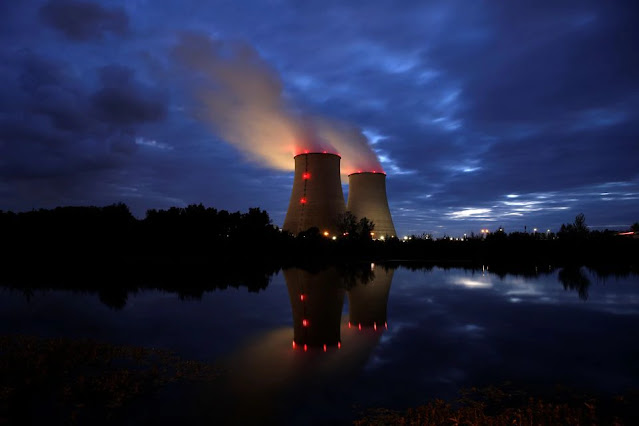 |
| Image Credit: REUTERS/Benoit Tessier |
After years of fighting between governments for truly climate-friendly investments, the European Union has drawn up plans to label some natural gas and nuclear power projects as "green" investments.
The European Commission is expected to propose rules in January to decide whether nuclear and gas projects are included in the EU's “sustainable finance taxonomy”.
This is a list of the economic activities and environmental criteria that must be met in order to be labeled as a green investment.
By restricting the “green” label to really climate-friendly projects, the system aims to make these investments more attractive for private equity and to stop “greenwashing”, in which companies or investors exaggerate their eco-friendly credentials.
Brussels has also taken steps to apply the system to some EU funds, which means the rules could decide which projects are eligible for specific public funding.
A draft of the Commission's proposal, seen by Reuters, would label investments in nuclear power plants as green if the project has a plan, resources and location to dispose of radioactive waste.
In order to be considered green, new nuclear power plants must obtain a building permit before 2045.
Investments in natural gas power plants are also considered green if they emit less than 270 g of CO2 equivalent per kilowatt hour (kWh), replace a more environmentally harmful power plant with fossil fuels, receive a building permit by December 31, 2030 and it is planned to switch to low-carbon gases by the end of 2035.
Gas and nuclear generation would be labeled green as they are "transitional activities" defined as those that are not fully sustainable but have emissions below the industry average and do not contain environmentally harmful assets. .
"Taking into account current scientific advice and technological progress, as well as the different transition challenges between Member States, the Commission believes that natural gas and nuclear energy play a role in facilitating the transition to a predominantly renewable future," the European Commission said in a statement.
To help states with different energy backgrounds make the transition, "under certain conditions, solutions that don't look 'green' at first glance can make sense," a commission source told Reuters, adding that the solutions are investments in gas and nuclear power would be subject to "strict regulations".
EU countries and a panel of experts will analyze the draft proposal, which could change, before it is published at the end of January.
Once published, most EU countries or the European Parliament could vetoed it .
The policy has been mired in lobbying from governments for more than a year and EU countries disagree on which fuels are truly sustainable.
Natural gas emits around half of coal's CO2 emissions when burned in power plants, but gas infrastructure has also been linked to methane leaks, a potent EU adviser had recommended that gas-fired power plants shouldn't be labeled as green investments unless they hit a lower emission limit of 100g CO2e / kWh based on deep cuts in deep emissions scientists say are needed to avoid disastrous climate change.
Nuclear power produces very low CO2 emissions but the Commission sought expert advice this year on whether the fuel should be deemed green given the potential environmental impact of radioactive waste disposal.
Some environmental campaigners and Green EU lawmakers criticised the leaked proposal on gas and nuclear.
“By including them… the Commission risks jeopardising the credibility of the EU’s role as a leading marketplace for sustainable finance,” Greens president Philippe Lamberts said.
Austria opposes nuclear power, alongside countries including Germany and Luxembourg. EU states including the Czech Republic, Finland and France, which gets around 70% of its power from the fuel, see nuclear as crucial to phasing out CO2-emitting coal fuel power.
Comments
Post a Comment